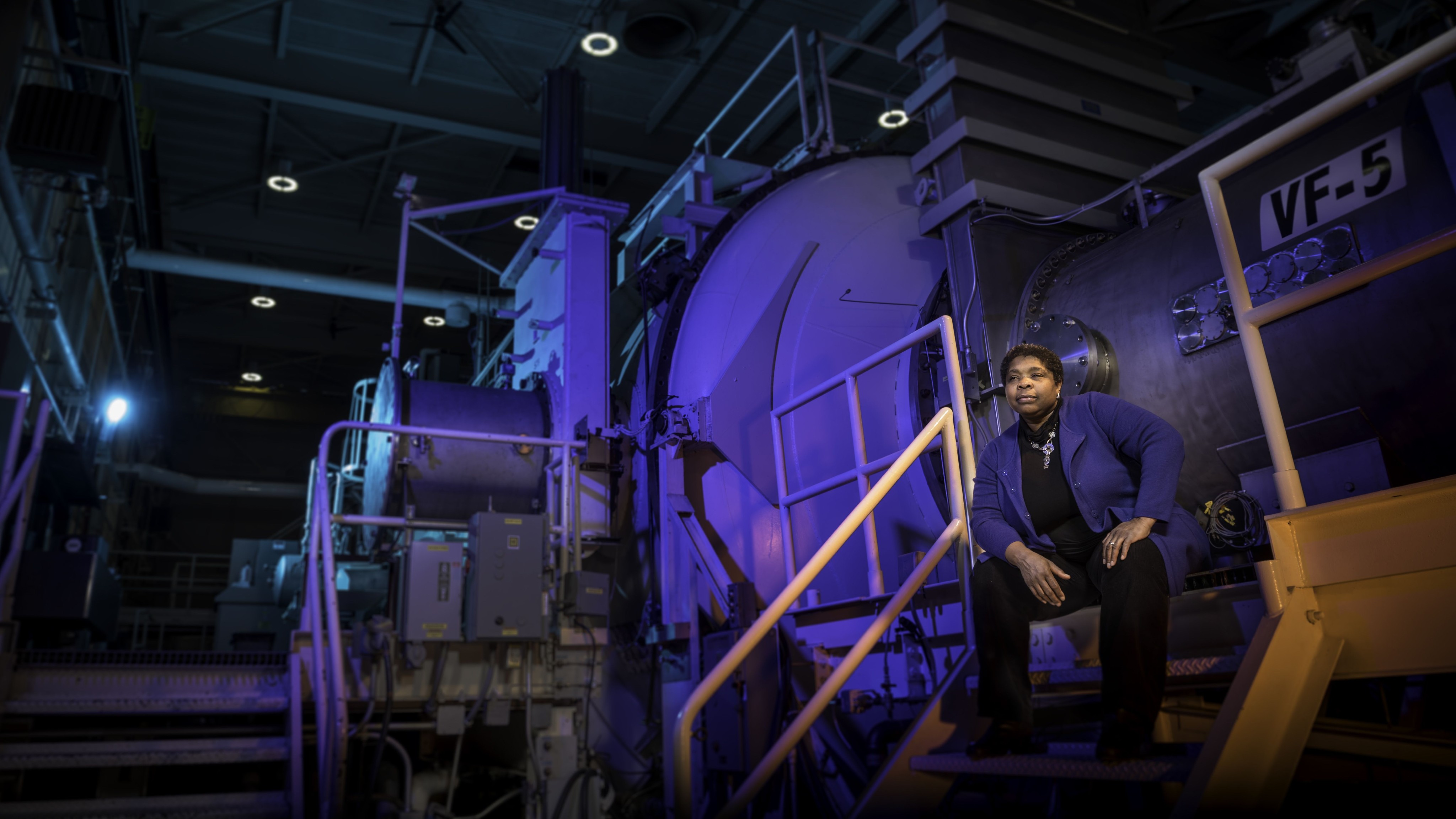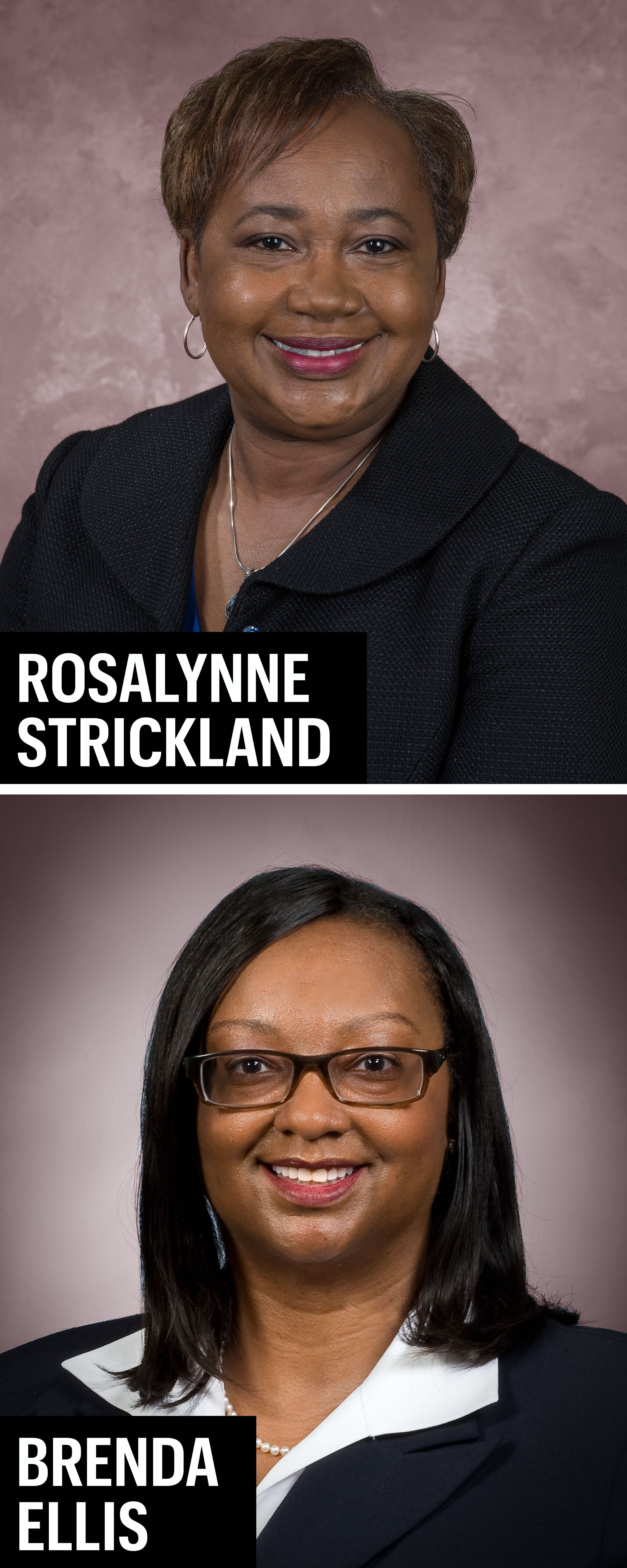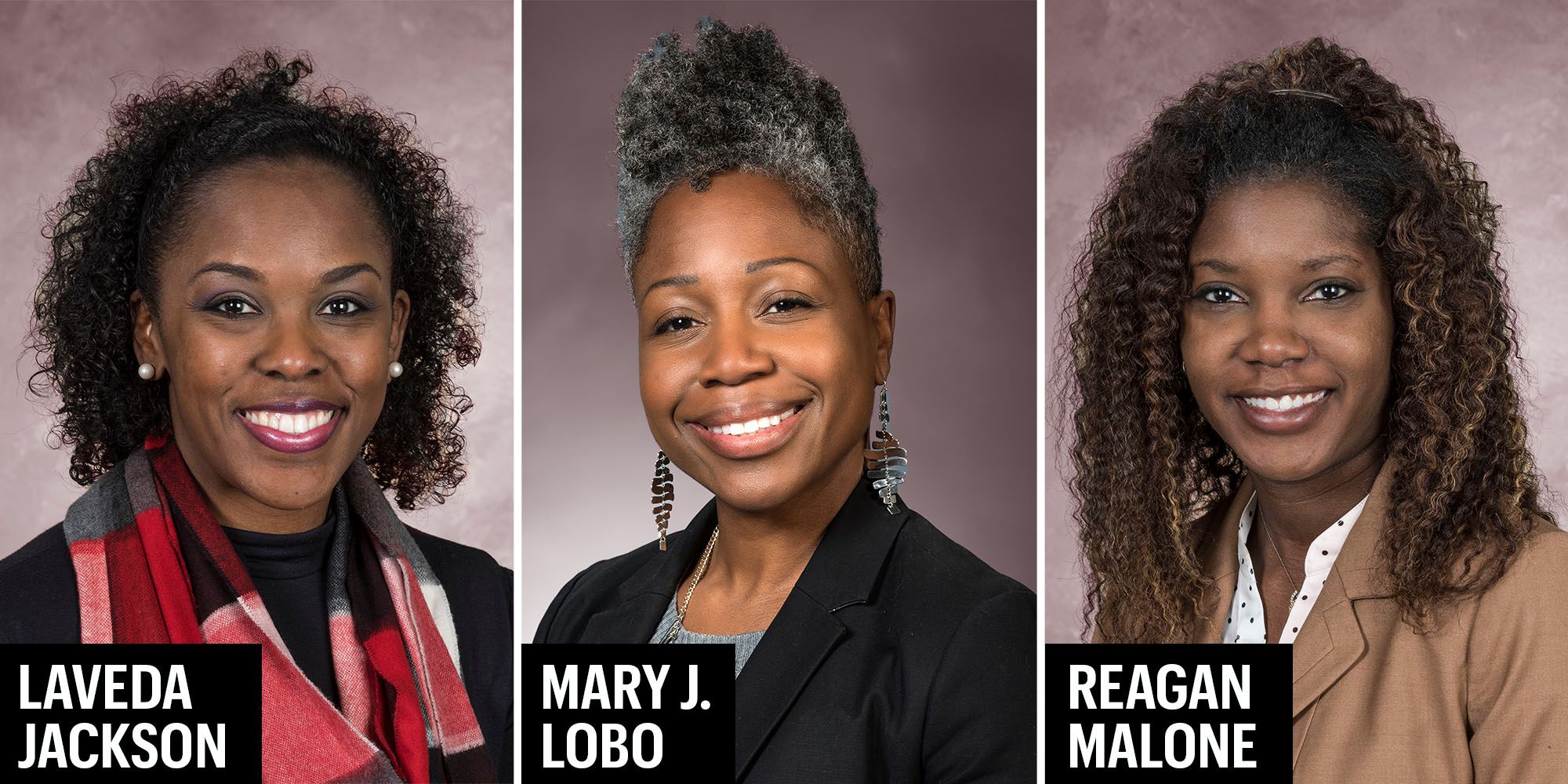Today's Hidden Figures: Meet the Black Women Working at NASA
Make room on your "icons" list.


Hidden Figures tells the story of three women of color working at NASA in the 1960s, without whom John Glenn's historic space orbit wouldn't have been possible. It was a time when African Americans were denied rights as basic as sitting at a lunch counter, yet Katherine Johnson, Dorothy Vaughan, and Mary Jackson sent a man into space.
In celebration, Marie Claire spoke with six African American women working at NASA today, who oversee everything from rocket system designs, to vacuum chambers, to space-launch software. They're a reminder that today's black female leaders aren't hidden. They're at the forefront of what makes NASA great.
What's it like to be a black woman at NASA today?
"It's an honor to be a black woman working in a technical field at NASA. When I look around in meetings, there aren't many people who look like me in the room. I am blessed to work on a team that actually values diversity of thought—a team that seeks my input daily and recognizes my strength of being able to offer a different perspective in problem solving." —Reagan Malone; Technical Assistant, Space Launch System Program
"Black women are treated more equally than in the earlier days. It's an honor to see women of color that look like myself, talk like myself, are shaped like myself, and think like myself in high positions—and see them getting recognized for doing great things." —Laveda Jackson; Systems Engineer
"Though NASA supports diversity and inclusion, when I sit in technical meetings and look around the room, I am reminded that black women are still very much underrepresented in science and engineering here. I am hopeful that one day in a room of 50 peers, maybe I would see at least a few other faces that look like mine. But instead of just being hopeful, I recruit, I speak out, and I encourage young black women to join our ranks. NASA is the best platform to motivate young black girls to dream to be in math or science fields, so I utilize it every chance I get." —Mary J. Lobo; Space Simulation Facility Manager
Though NASA supports diversity and inclusion, when I sit in technical meetings and look around the room, I am reminded that black women are still very much underrepresented in science and engineering here. I am hopeful that one day in a room of 50 peers, maybe I would see at least a few other faces that look like mine.
What would you tell Katherine Johnson, Dorothy Vaughan, and Mary Jackson today?
"Thank you for never giving up. They proved that black women are capable of working side-by-side in a field that is traditionally dominated by white males. They did it during an era where black people were fighting to have equal civil liberties. They did it so that I can see my dreams come true by being able to work on a program that is building the largest rocket in the world: a rocket that will take humans farther into space than they have ever been. Their stories have reminded me to persevere when times get tough. I have to endure so that black women at NASA after me may see a more diverse agency." —Reagan Malone
"You all fought for what you believed in without neglecting the work you were paid to do. You did not sacrifice integrity to make a point. Thank you all for showing the world that sometimes you just have to 'make a way out of no way' to get the job done. —Dr. Brenda L. Ellis; Computer Engineer
Get exclusive access to fashion and beauty trends, hot-off-the-press celebrity news, and more.
"I would thank Katherine Johnson for showing resilience to keep fighting for respect and recognition in a room of people who didn't want to see her prevail, although they knew she was well-qualified. I would thank Dorothy Vaughan for taking the initiative to educate herself and other black women colleagues instead of looking out for herself only, like so many others do nowadays...I would thank Mary Jackson for striving to become a black female engineer. They all showed patience, consistency, persistence, and a love for education so that I can share the dream of being an 'equal rights' engineer here at NASA." —Laveda Jackson

What needs to change before the next generation starts work?
"The next generation of NASA employees will come from a diverse group of innovators and trailblazers, and if we want to continue to attract the best and the brightest, we have to show them an organizational structure that is representative of their uniqueness." —Rosalynne Strickland; Engineer, Marshall Space Flight Center
"I would like to see the space industry as a whole further emphasizing diversity in problem-solving groups. The issues we will face in commercial spaceflight, humans living on Mars, or journeying beyond will not be resolved with the opinions of a few." —Mary J. Lobo
"Before the next generation starts work, I would like initiatives that encourage all young people to pursue science regardless of gender." —Carol M. Tolbert; Aerospace Engineer/Project Manager

What impact will the movie have on NASA?
"When I began my career, I was constantly asked if the offers I received were due to affirmative action. There should never be a doubt that affirmative action helped a lot of minorities to gain employment, but without preparation and skill, there was no way that minorities would have been able to remain employed. This movie shows that proper preparation and skill is what is needed in the workforce and, with the right opportunity, preparation and skill put a man into space and changed the course of space travel." —Dr. Brenda L. Ellis
"The story of these three women is important in influencing the narrative about the contribution of women—and particularly African American women—to our country's historic achievements. We didn't just participate in critical movements of the time to address our nation's tangible issues about war, poverty, and civil rights, we also had a prominent role in the fantastic goal of space travel. Hopefully the movie will affect people's unconscious bias to help them see us as an integral part of every aspect of our nation's advancement and recognize that we must have a seat at the table too." —Mary J. Lobo
Hidden Figures is currently in theaters—and you can check out NASA's video series surrounding the film here.
Follow Marie Claire on Facebook for the latest celeb news, beauty tips, fascinating reads, livestream video, and more.
